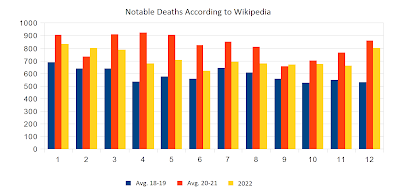More than ten years have passed since I last held a job with a salary, and my ability to survive, and even thrive, without a job is seen as a bit of a mystery to many of my friends and relatives. The fact that I'm as well off as my well paid younger brother must be a complete mystery to him, and I couldn't help sense a certain degree of resentment from him last time we met. But there isn't really any mystery to my situation if one simply sits down to analyse it.
The key difference between my financial situation and the financial situation of most other people is that I've managed to reduce fees and taxes to near zero by simply avoiding investments that come with such burdens. My brothers have all invested in real-estate which comes with many taxes and many fees. I have instead put my money into gold for the moment, which comes with no taxes and no fees.
My brothers are spending a large part of their capital income on fees and taxes, but I don't. I spend it on myself, and since I've moved to Portugal where the cost of living is lower than in Norway, I can afford to let my children in Norway take half of the capital income without it impacting my standard of living.
This is only possible because I like to live a life in ease rather than luxury. I have no desire to travel the world. Whenever I see pictures of friends on the slopes of the Alps or in front of some city landmark, I thank myself lucky for being at home with my little projects. This doesn't mean that I don't like to go for an outing every now and again. I do like a change of scenery, but it doesn't have to be to some expensive resort, or very far away. Tagging along with my wife to a work related conference somewhere is luxury enough for me, and the fact that she gets paid by her employer to do so makes it all the more enjoyable.
During summers, we rent a house with a swimming pool for a week, and that's about it as far as traveling is concerned. Since I'm living in Portugal rather than Norway, my vacations come at a fraction of the cost it would have been had I stayed in Norway.
All of this has been possible through simple analysis of the reality of my situation. I've been blessed with an inheritance large enough to sustain me and my family, provided I arrange thing optimally in terms of finances. The trick was to figure out what the optimal configuration was, and to actually implement the solution. The implementation required me to sell my house in Norway, which I found emotionally painful at the time, but as the saying goes: there's no gain without some pain.
There's nothing mysterious about my situation, but people are nevertheless puzzled. My mother has been wondering what to tell her friends about me. Her other children have to work in order to cover their daily expenses. Surely, I must be doing something to make a living myself. When I tell her that I don't actually need to work, she refuses to believe me. I guess the consensus among my closest relatives and friends is that I'm living off of my wife, engaged in dodgy tax fraud, or possibly both. The truth is simply too straight forward to believe.
Key to all of this is my personality. I'm an INTJ in the Meyers-Briggs type indicator, and I'm an unusually well balanced one with a flat distribution over the four components of this indicator, so I'm unlikely to ever meet anyone more INTJ than myself.
A key trait of the INTJ is that things are analysed into their essentials, and plans are drawn up based on this. I'm not particularly interested in anecdotal evidence. I want to know the broad lines and the essentials. Who cares if someone did this or that. What matter is the broader picture.
It was this type of thinking that convinced me that I was in fact in a position to retire at the age of 48, and that the only thing holding me back was a lot of anecdotal stories about people getting destroyed by an overly optimistic view of their personal finances. According to my calculations at the time, I would scrape by for a few years and then prosper.
To be on the safe side, my plan was to add some income through private projects. However, this came to nothing, and it worried me that I failed in this because my margins for error were thin. When I sold my house in 2017, I was very much at the edge of what I could endure, so I decided to look for work in Porto, just to be on the safe side.
I brushed up on my LinkedIN profile, and even got a few job interviews, but no-one hired me, and I eventually stopped looking for work. Seeing that my finances were sufficiently improved from selling my house to sustain me as originally planned, my nerves calmed, and I'm now completely relaxed about things because they have in fact unfolded according to my original plan from more than ten years ago. Now that all the uncertainties are gone, I can say for sure that I'll do fine under almost any circumstances from here on out.
But my LinkedIN profile is still up, and I get a handful of views every week. Not knowing very well what to do with it now that I'm no longer serious about looking for a job, I've decided to make it an honest description of myself rather than a sales pitch for a job. I've added the fact that I'm an INTJ, and I've added the sort of things that have transpired from this fact.
My personality has benefited me in that it has saved me from doing any work since I turned 48. It has also benefited me in that I realized early that the virus scare of 2020 to 2022 was a hoax, and I'm unvaccinated as a consequence of this. Those who come across my LinkedIN profile and read my introduction to the end will learn that I'm independently wealthy and unvaccinated because of my INTJ personality.
Now that the dust has settled on the whole vaccination thing, it's becoming increasingly clear that the push to vaccinate was in fact a push for conformity. To be vaccinated is to be an obedient cog in the machinery of the state.
Those who read my LinkedIN profile are probably themselves dependent on a salary, and they are likely to be vaccinated as well. Faced with a candidate who is neither dependent on a salary nor a cog in the machine, they will necessarily reflect on this, and some will realize that I'm the person they would have liked to be themselves.
 |
| Me enjoying a cup of coffee |





















